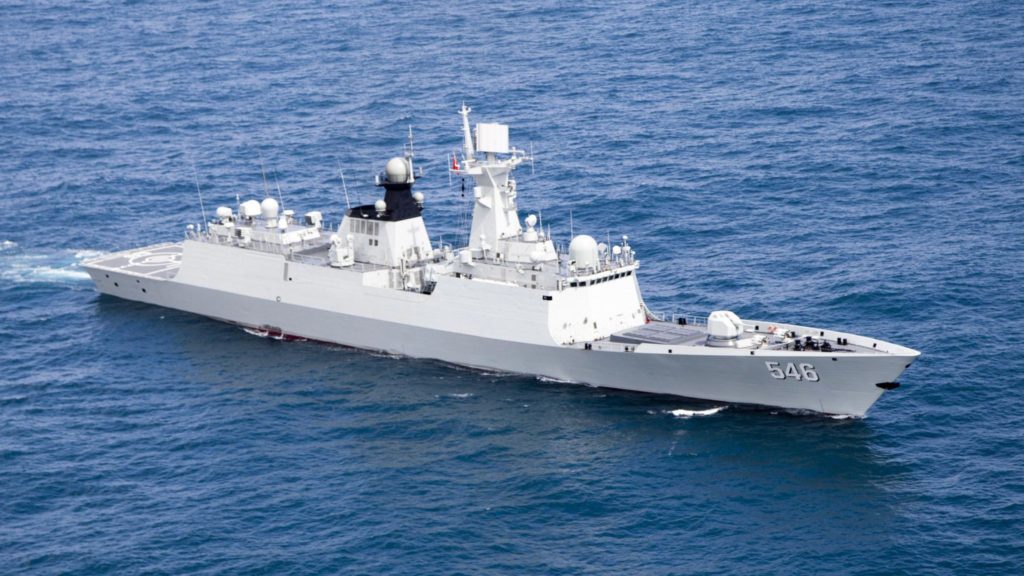The People’s Republic of China sent its guided-missile frigate Yancheng to Lagos, Nigeria this week for a multinational naval exercise in the Gulf of Guinea, the first time China has participated in the Nigerian-led maritime conference.
Exercise Eku Kugbe involved 12 ships from the Nigerian Navy and one each from Cameroon, Ghana, Togo, France, Portugal and China. It is separate from the U.S.-led Obangame Express 2018, which started May 30 and lasts for eight days.
Since its inauguration in 2016, the Nigerian maritime conference has focused on piracy and regional threats to shipping in the Gulf of Guinea.
The Yancheng, a People’s Liberation Army Navy Type 054A class frigate, is frequently deployed for anti-piracy operations in the Gulf of Aden, near China’s military base in Djibouti. China recently built a new pier to accommodate its naval vessels at Djibouti, and its Ministry of Defense clarified to state media the improvement was for “anti-piracy work.”
China has a vested interest in halting piracy off Nigeria’s coast, as it is Nigeria’s second-biggest trading partner and imports nearly $1.5 billion worth of oil and gas per year.
Chinese state-owned companies China National Offshore Oil Company, PetroChina, and Sinopec all have investments in Nigeria, either controlling stakes in certain wells or outright owning certain facilities and petrol stations.
Piracy in the region increased in the first quarter of 2018, according to the International Maritime Bureau. Four vessels were hijacked this year alone, and 113 sailors have been kidnapped in the area.
Oil-rich and absent a large navy presence, the Gulf of Guinea provides ample opportunity for pirates seeking to exploit tankers transiting in and out.
The naval exercise was sponsored by the Economic Committee of Central African States, and the Economic Community of West African States, both of which have strengthened maritime security initiatives in recent years. ECOWAS received surveillance and logistical equipment from Germany to combat piracy earlier this month.



